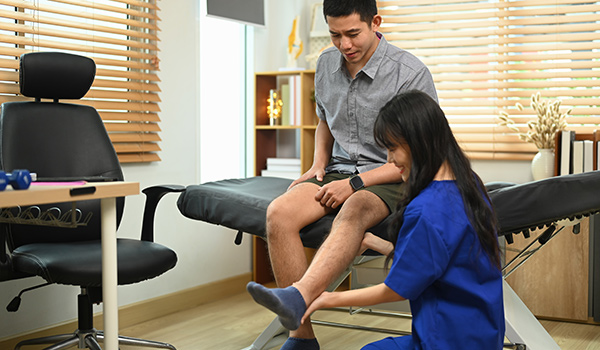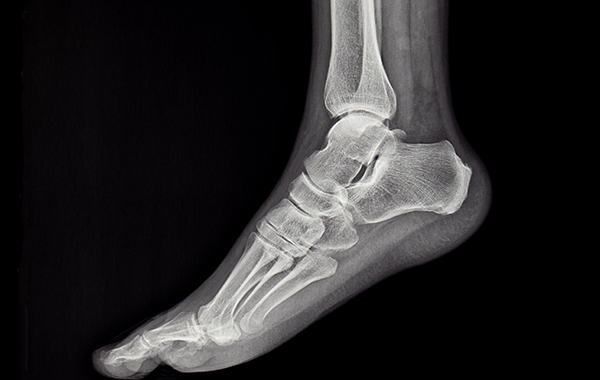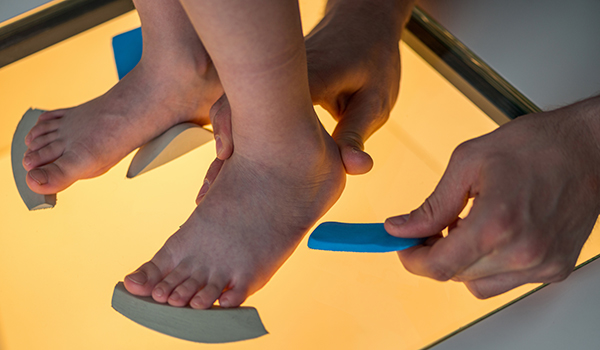NoFrills podiatry Foot Orthotics
When choosing Prescription Shoe Insoles, it’s important to consult a Podiatrist. Their expertise can determine the difference between successful recovery and worsening pain or deformities.
Every foot is unique, and so are yours. Your prescription orthotic is meticulously designed to fit your foot type and address your specific body condition. Our detailed process ensures each device is crafted to the highest standards of quality.
WHAT TO EXPECT
The NoFrills Podiatry Process
There are numerous natural methods to effectively manage and overcome fatigue, often with a holistic approach proving most beneficial.
INITIAL CONSULTATION
15 to 20 minutes
CLINICAL EXAMINATION
Diagnostics & Clinical Investigation
PATIENT EDUCATION
Informed Consent
MUSCULOSKELETAL ASSESSMENT & 3D FOOT SCAN
PRESCRIPTION DESIGN & FABRICATION PROCESS
QUALITY CONTROL & FINAL CHECKS
INSOLE FITTING
NoFrills Podiatry Foot Orthotics
Our comprehensive musculoskeletal assessment includes:
- 3D imaging (full/semi weight-bearing)
- 3D foot scan and detailed explanation
Postural analysis
- Clinical gait analysis using the Optogait System
Customized prescription design
12-18 months follow-up program (duration varies by age)
1-year warranty on adjustments (1.5 years for children under 16)
5-year warranty covering defects and breakage (up to 2 exchanges)


Follow up appointments:
-
- Extended Footwear Evaluation
-
- Orthotics
-
- 1st month review
-
- 6th month review
-
- 12th month review
-
- 18th month review (for children below 16 years)
Frequently Asked Questions
What are Custom Foot Orthotics/Custom Insoles?
Custom orthotics are personalized medical devices prescribed to alleviate foot injuries and disorders, offering pain relief and support without invasive measures.
A podiatrist performs a thorough assessment of your musculoskeletal health, natural biomechanics, and lifestyle to determine if custom orthotics are the right solution for your needs.
When Do You Need Orthotic Insoles?
If you have lower limb injuries, severe pain, or need to stand for extended periods, custom orthotics can provide essential structural support and prevent further injury.
Conditions that may benefit from orthotics include:
– Flat feet or high-arched feet
– Plantar fasciitis
– Heel spurs
– Morton’s neuroma
– Arthritis
– Metatarsalgia
– Diabetes-related foot issues
– Hammer toes
– Bursitis
– Pediatric foot conditions
– Back pain caused by foot misalignment
Properly aligned feet can significantly alleviate pain and inflammation in the knees, hips, and lower back, as they are the foundation of your body. Consult a podiatrist for an assessment to determine if custom orthotics are right for you.
Can Orthotics Help?
Custom orthotics are an excellent non-invasive solution for many foot, knee, hip, and back issues. They help distribute pressure evenly, provide support and balance, and offer shock absorption. This can reduce the impact of your movements, realign your knees and hips, and improve your gait over time, potentially helping you avoid surgery.
Are Custom Orthotics Necessary?
Basic shoe inserts made of gel or foam offer comfort but don’t fix foot problems.
Custom-made orthotics are molded to your unique foot shape, providing superior support and pain relief. Though more expensive, they are a better investment than generic insoles, which often fit poorly and need frequent replacement. Custom orthotics come with a specialist’s assessment and are made from durable, high-quality materials that can last for years with proper care.
Will Orthotic Insoles Hurt My Feet?
Orthotics may not feel comfortable initially, but they shouldn’t be painful. To get the best results, break them in properly.
Follow your podiatrist’s advice and personalized plan to minimize discomfort. Over time, your foot structure will adjust, and any initial discomfort should disappear.
Do I Need To Wear Special Shoes?
You don’t need special shoes for your custom orthotics, but your shoes should have the following supportive features:
- A removable footbed to be replaced by the orthotic insole
- A wide, stable base
- Firm middle that doesn’t twist easily
- Material that isn’t too soft
- A deep toe box
It’s recommended to have one pair of well-fitted supportive shoes to wear with your orthotics regularly. Some patients buy multiple orthotics for different uses and footwear.
Book your initial podiatry visit
hello@nofrillspodiatry.com
Phone
9007 1085
Open Hours
Mondays - Sundays: 9am-6pm
We're Here Whenever You Need Us
hello@nofrillspodiatry.com
Contact Us
9007 1085
Open Hours
Monday-Sundays: 10am to 7pm
Address
About
About Us
Symptoms We Help With
FAQs
Careers
Contact Us
